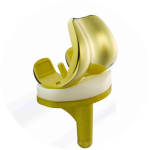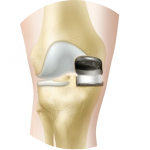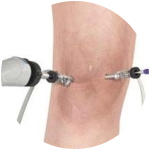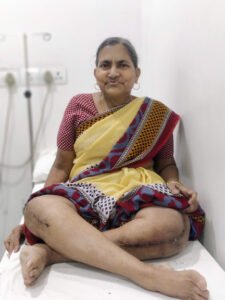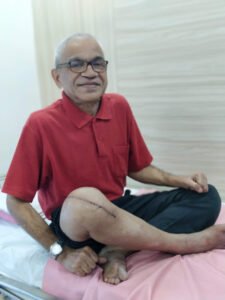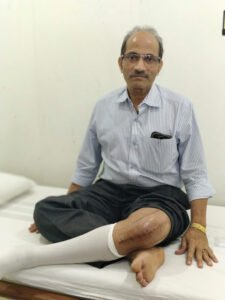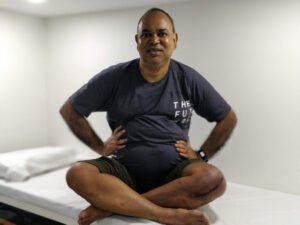Shoulder Replacement Surgery in Thane | Dr Bakul Arora

Shoulder is a significant joint that is responsible for a great deal of movement. It covers a greater range of motion than any other joint in the body. Any condition causing pain, discomfort to this joint can affect a large part of the daily activities one performs. When the discomfort is to the extreme point when simple medication and therapies are of no use, one might consider a shoulder replacement surgery in thane if he is from Thane City. Let’s Understand What is Shoulder Replacement surgery , why its needed and and its Benefits..
What is Shoulder Replacement Surgery?
Also known as shoulder arthroplasty, this surgery replaces damaged shoulder areas with artificial implants. These implants are made up of metals, plastics or other materials and are crafted for individual fit.
The main goal of the shoulder replacement surgery is to reduce pain, weakness and stiffness in the shoulder and regain the lost shoulder function to the maximum.
There are the different shoulder replacement procedures available at Arora Clinic in Thane and the type of replacement procedure opted for a patient depends upon the type of shoulder damage along with common factors such as age and overall fitness.
Types of Shoulder Replacement Surgery
• Anatomic total shoulder replacement
This is done to replace both the ball and the socket
• Reverse total shoulder replacement
Here the ball and the socket are replaced but with reversed implants and is opted in case of severe shoulder damage
• Partial shoulder replacement
It is done when only the head (ball) of the joint is damaged

Shoulder Replacement Surgery Procedure
Before the surgery, the Shoulder Replacement Surgeon in thane will examine the overall health of the patient along with the medical history. Imaging tests such as x-rays and MRI will also be needed to track the exact damage and plan for the implants. Apart from these other tests such as blood test might also be recommended by the Shoulder Replacement doctor .
It is important to let the surgeon know about any medication that the patient might be taking.
The surgery is performed general anesthesia. The Shoulder Surgeon in thane will make cuts and will place the implants and will stitch the area. After surgery, in majority of the cases, patients will be able to perform regular function like walk, eat and go to bathrooms. Patients might be advised to stay for a few days into the hospital depending upon the individual condition.
Recovery after Shoulder Replacement Surgery
Total recovery might take few weeks and depends upon the severity of damage and type of replacement. The shoulder must be kept immobilized after surgery for which a brace might be put on the shoulder. Pain and other medication may continue for some time.
Physical therapy is important for recovery and aims to improve the shoulder function by allowing guided movement and strength gaining.
Benefits of Shoulder Replacement Surgery?
Below are the benefits that a shoulder replacement provides:
• Relief from severe pain and discomfort
• Allows the patient gain full shoulder motion
• Eases one in normal activities which otherwise is difficult or not possible
• Is beneficial for professionals like sports persons who have a career depend on it
The shoulder replacement surgery in Thane has a very good success rate. Almost all patients experience pain-free functioning enabling them to even exercise the shoulder to restore strength and motion.
Shoulder Replacement Surgeon Near Me
Looking for a Shoulder Replacement Surgeon near me? At Arora Clinic in Thane, our expert surgeons specialize in shoulder replacement surgery, using the latest techniques to relieve pain and restore function. Whether you’re dealing with arthritis or injury, we provide personalized care tailored to your needs. Learn more about our shoulder replacement services at Arora Clinic.
Frequently Asked Questions
that Shoulder replacement surgery is typically recommended for people who have severe arthritis or other conditions cause pain and limited mobility in the shoulder joint, and who have not found relief through non-surgical treatments.
Shoulder replacement surgery is typically performed under general anesthesia. During the procedure, the surgeon makes an incision in the front or side of the shoulder and removes the damaged parts of the joint. The artificial joint is then implanted and the incision is closed.
Like any surgery, shoulder replacement surgery carries risks such as infection, bleeding, and blood clots. Other risks include nerve damage, joint dislocation, and loosening or wear of the artificial joint over time.
The recovery process after shoulder replacement surgery can take several months. Patients will typically need to wear a sling for several weeks and attend physical therapy to regain strength and mobility in the shoulder joint. Full recovery can take up to a year.
The lifespan of an artificial shoulder joint can vary, but most last between 10 and 20 years. Revision surgery may be necessary after this time period.
Prior to surgery, patients may be advised to stop taking certain medications, quit smoking, and prepare their home for their recovery period. It is important to discuss any concerns or questions with the surgeon prior to the surgery.
The length of the hospital stay can vary, but most patients are able to go home within a few days after the surgery.
The timeline for returning to normal activities can vary, but most patients are able to resume light activities such as driving within a few weeks, and return to more strenuous activities such as sports within several months to a year after the surgery.
Dr Bakul Arora is Best Shoulder Replacement Surgeon in Thane.
Yes, physical therapy is typically necessary after shoulder replacement surgery to help regain strength and mobility in the shoulder joint. A physical therapist will work with the patient to develop a customized rehabilitation program.
Thank You "Times Group" for felicitating Arora Clinic for "Excellence in Patient Care"
We are really honored to receive this and we will continue to serve the society better than ever We aim to provide the world-class Knee/Hip Replacement Surgical (Minimal Invasive Surgery) treatment to every patient suffering from knee or hip pain and at the same time make their life pain-free and happy.
Our Services
Are you looking for Best Knee Replacement Surgeon?
Then you are at Right Place
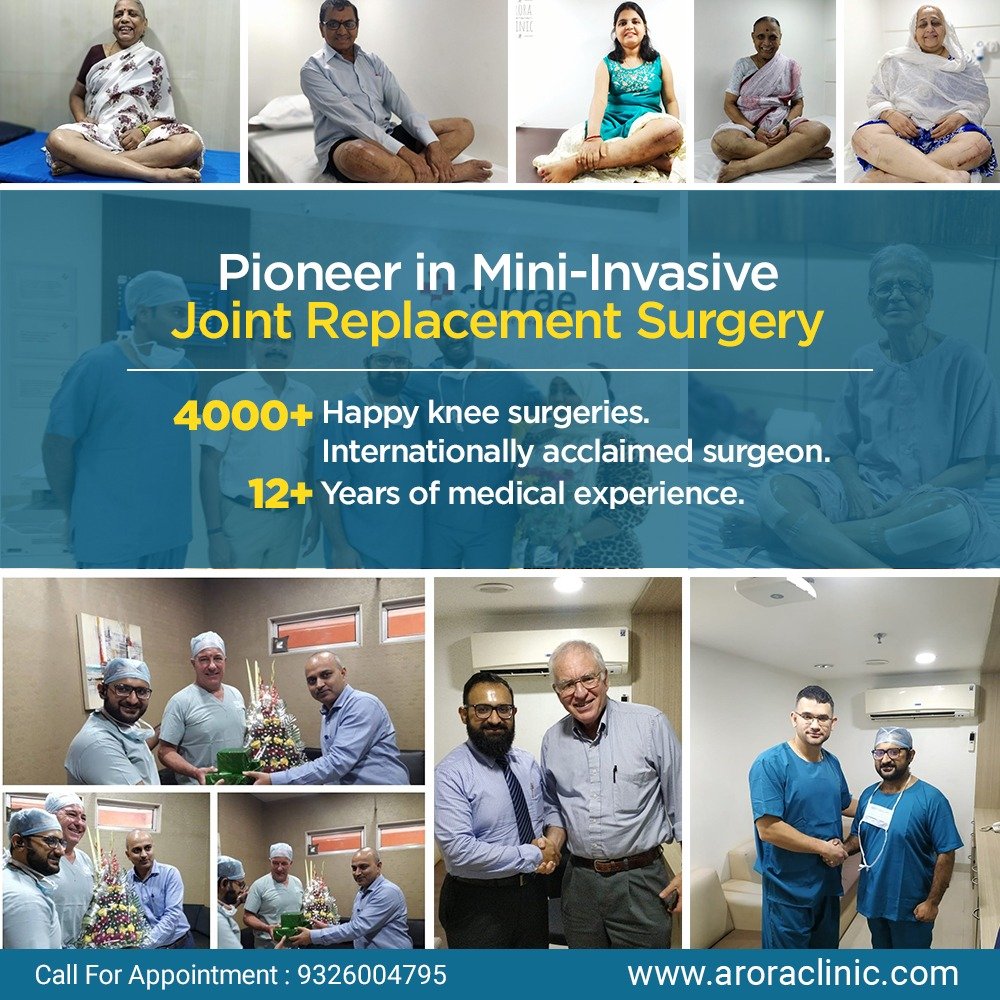
Dr. Bakul Arora’s Joint Replacement Clinic is also known as “Arora Clinic” which is located at Hiranandani Meadows in Thane, within a very convenient proximity to Mumbai. Arora Clinic dedicated clinic for Knee Replacement surgery and all kinds of Orthopaedic treatments and surgeries
The Arora Clinic is one of the most advanced Orthopaedic clinic in Thane region and dedicated to providing the best, personalised healthcare with a breadth of surgical and medical expertise. Arora Clinic offers the modern surgical treatments like “Minimally Invasive Knee Replacement Surgery” which is also called as “PAIN-LESS SURGERY” for any complex knee diseases.
About Surgeon
Dr. Bakul Arora is a Consultant Joint Replacement & Orthopaedic Surgeon is one of the leading Knee Replacement Surgeon in Thane and Mumbai with over 4000+ successfully surgeries. Dr. Bakul Arora specialises in Mini-invasive techniques which offer multiple benefits to patients. He does the surgery using Subvastus approach for Knee Replacement surgery and Direct Anterior Approach for Hip replacement Surgery . This new techniques has many advantages for patients like its pain-less , stich-less surgery, patients walks on the same day after surgery, no blood loss, faster recovery etc.


Patients Review on Arora Clinic
International Patients Videos
FAQS
Knee replacement is required for advanced arthritis of the knee joint, producing painful limitation of movements and restriction in activities of daily living. Knee replacement as a solution should be offered when all non–surgical methods of treatment failed and painkiller medicines and injections also failed to reduce the Knee and hip pains.
Knee replacement can be total or unicondylar, depending on the number of compartments involved. Among the total knee replacement, there are two popular designs- Cruciate Retaining, and Posterior Stabilized. The decision for the design is best taken by the operating orthopedic surgeon based on the integrity of ligaments. Patella resurfacing as a routine is a debatable subject.
Yes, most knee replacement surgeries are minimally invasive, with numerous benefits to the patient, including smaller incisions, less tissue trauma, bleeding and post–operative pain, shorter hospital stays, faster recovery, and earlier return to work and activities — in weeks rather than months. Advantages of Minimally Invasive Knee Replacement Surgery. Patients Start walking in few hours of surgery. Patients start climbing the staircase from second day of his surgery. Patients Discharge with in 3 Days from the Hospital after surgery. No blood loss during the surgery, no blood Transfusion required. Less Physiotherapy.( No Physiotherapist required for home) Less Antibiotic. Stitchless Surgery. Recovery time is just two – three week.
Bilateral knee replacement in the same sitting, can be performed if both the knee joints are damaged to the same extent, however, the medical condition of the patient, and bone quality must be kept in consideration.
Surgery through Minimally Invasive technique patients start walking on the same day and staircase climbing starts from the second day of surgery. Patients can resume his work after 3 – 4 week.
The most significant risks include Infection, Deep vein thrombosis,and Aseptic loosening of implants. The risks correlate with the co-morbid medical condition, and must be discussed with the patient before surgery.
Patients normally require hospitalization for 3-4 days in single knee replacement, and up to 5-6 days in both knee replacement surgery
A single knee replacement takes approximately 90 min- 2 hours. Both knee replacement surgery takes approx 2-3 hours.
Years ago, knee replacement surgery was reserved for elderly patients due to a high complication rate and lack of implant durability. Modern techniques have allowed orthopaedic surgeons to base surgical decisions on a patient’s pain and disability, and not necessarily chronological age. Most patients who undergo knee replacement are between the ages of 50 and 80, but surgeons evaluate patients individually and primarily on their physiologic age and demands.
Patients can resume his/her light work after discharge from the hospital, no need for rest.
Patients are given epidural anesthesia for surgery, and post op pain relief. They are expected to follow instruction from physiotherapist regarding muscle training.
News Events
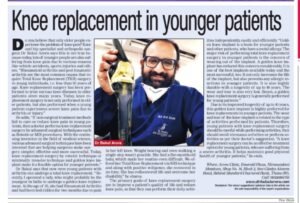
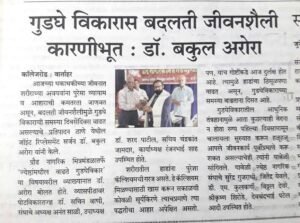
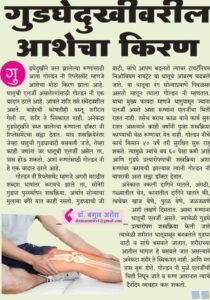

OUR HOSPITAL PARTNERS
MUMBAI
⇒ Wockhardt Hospital Mumbai Central, Mira road & Vashi
⇒ Apollo Spectra Hospital, Tardeo and Chembur
⇒ Cloud 9 Hospital, Malad
⇒ Criticare Hospital, Andheri
THANE
⇒ Arora Clinic, Hiranandani Meadows
⇒ Bethany Hospital, Vasant Vihar
⇒ Currae Hospital, Kapurbawdi
⇒ Horizon Hospital, Ghodbunder
⇒ Infinity Hospital, Majiwada
⇒ Lakecity Hospital, Khopat
⇒ Oscar Hospital, Majiwada
⇒ Drone Hospital, Bhiwandi

